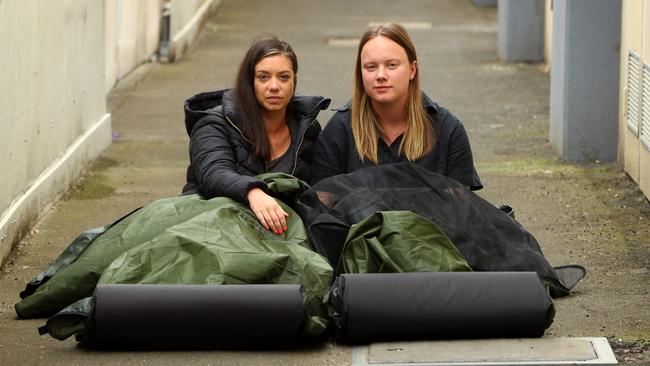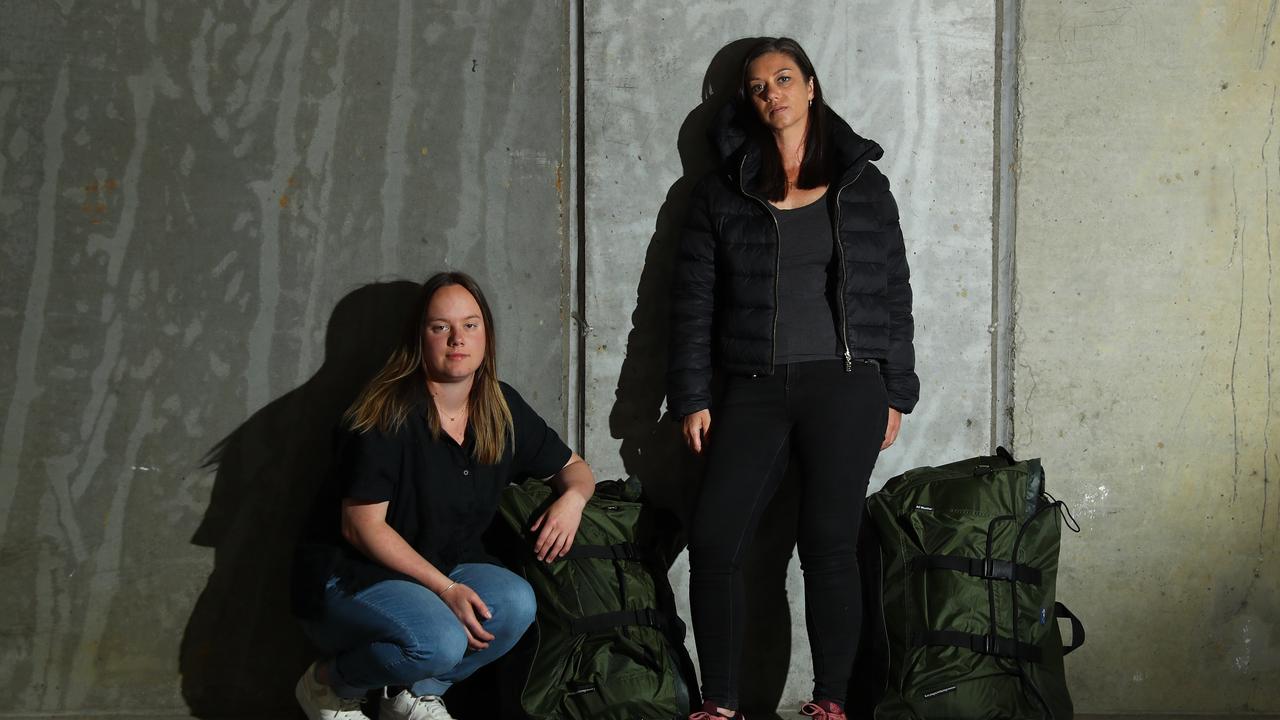Geelong’s homeless crisis: The Outpost volunteers sleep rough for week
Amy Flint and Maggie O’Neill left home with only the clothes on their backs and spent a week living on Geelong’s streets. Here’s what they learnt.

Geelong
Don't miss out on the headlines from Geelong. Followed categories will be added to My News.
The Outpost’s Amy Flint and Maggie O’Neill left home with only the clothes on their backs to live on Geelong’s streets for a week.
From walking on average 20,000 steps per day across the city to trying to find a safe place to sleep, the pair wanted to highlight the real issues facing our homeless community everyday.
They couldn’t use any of their previous knowledge of Geelong’s support services and had to rely on others to tell them where they could get a warm meal or a hot shower.
“We were lucky enough on the first day to be told about the Outpost and were given a meal and a backpack bed,” Ms O’Neill said.
“Often everyone was so busy going about their day that we didn’t feel seen but we found safety and comfort among the homeless community.”
After a period of uncertainty and long search for a new site, the Outpost is planning to move from its site in Transit Place, where it has been for 20 years, to its new home on Little Ryrie St on December 16.
The pair would walk around for about two hours each evening to find a safe place to sleep.
They slept in an old timber stand at St Mary’s Oval and near Deakin University on the waterfront.
“What (we had to) consider when sleeping rough was safety but also having access to facilities and where the nearest toilets and showers are,” Ms Flint said.
The pair discovered that most public toilets in Geelong close at 9.30pm and hot water for showers at Eastern Beach was only available from 7.30am to 10am each day.
Ms O’Neill said one of the biggest challenges they faced was begging on Malop St in the CBD with a sign that said they were sleeping rough for a week, with proceeds going to the Outpost.
“It was really uncomfortable putting ourselves in that situation,” she said.
“I felt so much judgement from people walking past and I felt invisible.”
Ms Flint said they were accepted within the homeless community and were “actively avoided” by the general public.

“Parents with children would walk by and the kids asked questions but the parents said to just keep walking,” she said.
“But there were also beautiful kids who came and put money into our cup which gave us hope for the next generation.”
The pair spoke to men and women who were living on the streets for various reasons including domestic violence and mental health issues.
“Men of all ages are continuously pushed to the bottom of housing lists as a lower priority,” Ms Flint said.
“It was surprising how many elderly people were accessing crisis services.”
They said the biggest lesson they learnt from their experience was how resilient and generous Geelong’s homeless community is.
“I was quite surprised in seeing how little the homeless community have but how much they are willing to give,” Ms O’Neill said.
“They’re always willing to give their last item to you.
“We did a lot of listening and getting to know everyone.
“Some of the traumas and challenges the community had faced were unbelievable and to know they still get up every day and get on with life is amazing.”
More Coverage
Originally published as Geelong’s homeless crisis: The Outpost volunteers sleep rough for week






